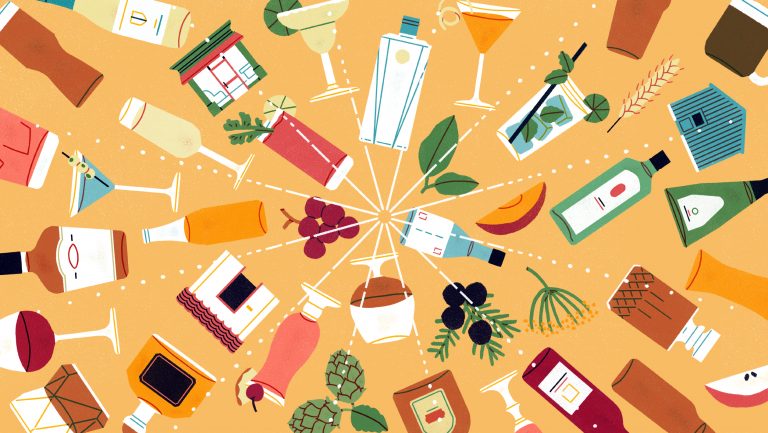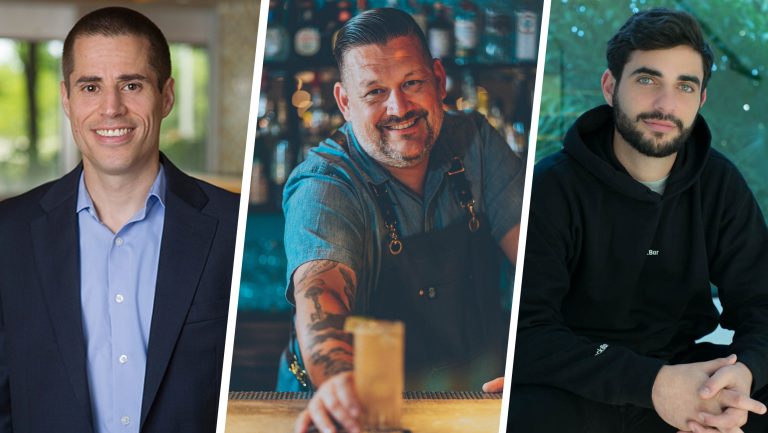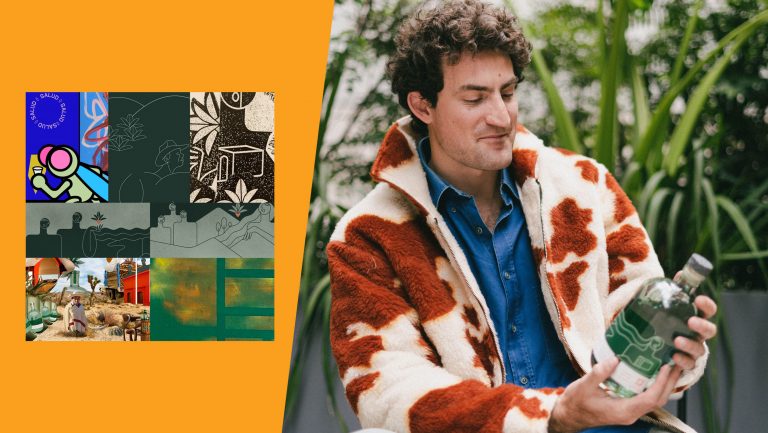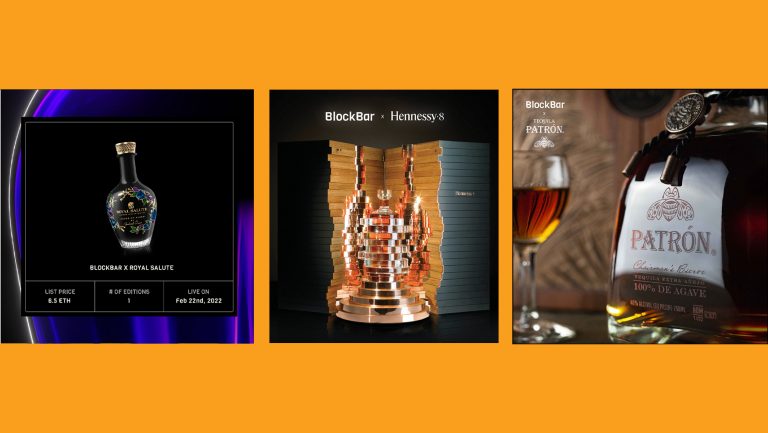Alcohol Brands Are Getting into the NFT Space. What Does This Mean for Legal Compliance?

[ad_1]
Once a niche of the art and music worlds, the release of non-fungible tokens, or NFTs, has spread among luxury fashion brands and iconic movie franchises alike. More recently, beverage alcohol brands have jumped on the bandwagon, with Budweiser selling all of its $500 NFTs within an hour and Glenfiddich releasing rare bottles of 1973 Armagnac Cask Finish Single Malt Scotch via an NFT drop.
The reasons why a beverage brand might want to get into the NFT space are myriad, from avoiding counterfeit bottles to creating a splash when launching a new brand. But with many of these NFTs attached to physical bottles of alcohol, it also presents questions around compliance—many of which remain unanswered. How can beverage brands both large and small legally dip a toe into the new world of NFTs?
Defining a Beverage Alcohol NFT
Let’s start with the basics: What exactly is a non-fungible token? Starting with the first part of the acronym, “non-fungible” means unique. Fungible, on the other hand, refers to an item that can be exchanged for or replaced by another, identical item. One bottle of Absolut, for instance, can be exchanged for another. Non-fungible refers to a unique digital asset, and sometimes, it corresponds to a real world item, which is referred to as “unlockable content.”

Don’t miss the latest drinks industry news and insights. Sign up for our award-winning Daily Dispatch newsletter—delivered to your inbox every week.
In the example of the Glenfiddich NFT, each NFT is a digital, circulating image of the bottle, and that unique image has information tied to it that corresponds to a real-world bottle of Scotch. The NFT, however, is not the bottle of Scotch itself.
Think of the NFT like the title to a car; it’s just a piece of paper that says a real-world item—a particular car with a particular VIN—belongs to you. The NFT is essentially the title to a particular, unique bottle of alcohol, and the owner may redeem the NFT for the physical item. Like a car title, a consumer can buy an NFT associated with a rare bottle of Scotch and then resell that NFT (meaning the title in our car analogy) to another person, which would transfer ownership of the bottle of Scotch as well. Put another way, NFTs are like baseball cards for the digital era that may or may not represent ownership of a real-world item.
Tokenizing, also sometimes called minting, is the process of a person placing that proof of ownership on the blockchain, according to Matthew Savare, the commercial contracts chair for national law firm Lowenstein Sandler. There are many blockchains, including Bitcoin, Etherium, and Solana, among others. Blockchains are merely digital legers that record transactions and are tamper-resistant, safe, and secure. The buying and selling of the token will be recorded on that particular blockchain so no one can dispute the ownership, meaning no one can “forge the title to your car.”

The tokens are bought and sold through what’s known as a smart contract, which is less like a contract and more like a computer program. “When something happens, it’s a self-executing program,” explains Savare. For instance, when an NFT is purchased from an owner, the smart contract can dictate that 10 percent of the fee goes back to the originator. There may also be “gas” fees, which are fees related to use of the blockchain.
How—and Why—Beverage Brands Are Selling NFTs
This sales chain relates to the digital file, not a physical bottle. To bring the physical bottles into the picture, we have to “apply tangible to intangible,” says Shawn Soole, the bar manager of Clives in Victoria, Canada. Since March, Clives has been offering NFTs in the form of digital cocktail photos; each is attached to unlockable content such as virtual classes on how to make the drinks or access to a special menu at the bar.
Many large suppliers, including Pernod Ricard, William Grant & Sons, and Moët Hennessy, have begun offering NFTs via BlockBar, which was created in 2021 by the family behind Duty Free Americas. BlockBar only works directly with brands—no wholesalers, retailers, or collectors, explains cofounder and president Sam Falic, who is based in Miami. The reason? Authentication.
“One of our goals was to solve the issue of brand authenticity,” he says. The real-world products tied to the digital video files are sent directly from the brands to a warehouse in Singapore. BlockBar only offers exclusives in the super-premium space, including brands like Patrón, Hennessy, and The Dalmore, much like the duty-free exclusives found at Duty Free Americas’ airport stores. Because the product goes from the brand to the warehouse, this also cuts down on counterfeiting, which is especially prevalent among luxury items. When an NFT holder wants to turn in the digital file, the corresponding, real-world product is delivered from the Singapore warehouse.

But it’s not just large conglomerates who are entering the NFT space. Craft sotol brand Cardenxe Sotol offered an NFT as part of its product launch in spring 2022. To appeal to creatives and artists, the brand wanted to “break the mold [and] bridge the gap between the physical and digital world,” notes cofounder Luigi Ambrosi. Starting at around $500, Cardenxe’s NFTs are digital art attached to real-world bottles of sotol fulfilled by retailers via third-party provider Cask & Barrel Club. Ambrosi is planning to release more NFTs because he feels they are “something exciting” that creates organic brand ambassadors.
Most brands are focused on single bottles, but Metacask is going bigger: the full barrel. To replace the documents and signatures required to buy and sell barrels from distilleries, Metacask is employing blockchain transactions instead. “Metadata will show where it’s stored, [what the] strength [is], when it was last tested, and all previous transactions,” says cofounder Nimantha Siriwardana. The company’s first NFT offer was a piece of digital artwork called The Angel’s Share, attached to a first-fill Sherry cask of Macallan 1991; it was sold in the fall of 2021 for $2.3 million.
Compliance in the Alcohol NFT World
Those in the alcohol beverage industry know the complexity of the U.S. regulatory, three-tier system, but when it comes to the compliance of NFTs attached to alcohol, the regulation landscape is still a bit of the Wild West. Beverage brands that release NFTs attached to experiences—such as those from Clives, or the not-yet-released NFTs from The Masters Keep, a forthcoming enterprise, which partners with small distillers and will attach unlockable content like distillery visits or exclusive dinners with brand owners—have fewer regulatory concerns. But when unlockable content includes alcohol, compliance tends to relate to whether the individual seller of the NFT has a license to sell alcohol.
“If it can be turned in for alcohol, you need a license,” says Florida Division of Alcohol and Tobacco counsel Kate Mashman, whose stance is likely echoed by other states. She sees offering NFTs akin to an auction, which in Florida is “not something you should do without a license.”

Many of the large brands who have released NFTs work with third-party providers like BlockBar for this reason, as they have a license to sell NFTs directly to consumers. But legal compliance is also important for purchasers of NFTs attached to alcohol to understand, as regulations for reselling these NFTs will vary by state. BlockBar acts as a marketplace, offering consumers who purchased on BlockBar the opportunity to sell their NFTs through the marketplace, rather than redeem them, similar to how an auction site would operate.
“Compliance is the largest issue,” says Andrew Friedman, the founder of Seattle-based spirits producer Industry Spirits. In December 2021, Friedman launched an NFT as “an experiment to see how CPGs work in this marketplace.” Along with a digital photograph of the bottle, the NFT includes a bottle of vodka or gin with a special label. In order to comply with three-tier laws, the bottles were immediately sent by a Washington State liquor store, therefore limiting the sale of the NFTs to consumers in states to which the retailer could ship alcohol. However, because Industry Spirits included the bottle with the original purchase, resales of the NFT by consumers contained solely the digital art—not the bottle of alcohol. This was outlined in the terms of sale, according to Friedman.
The safest solution for legal compliance may be avoiding resales by consumers altogether, but that goes against the trading card nature of NFTs. Their ongoing commercial promise is still being defined, but NFT releases attached to alcoholic unlockable content are growing in both popularity and scope. Next, perhaps a more formal regulatory process will emerge to meet this new market.
Ryan Malkin is principal attorney at Malkin Law, P.A., a law firm serving the alcohol beverage industry. Nothing in this article is intended to be and should not be construed as specific legal advice.
[ad_2]
Source link








